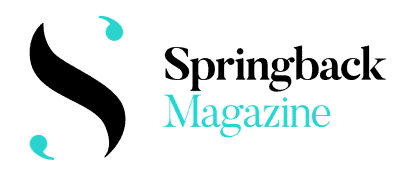Springback Academy 2022
Review

Call Alice
Temporary Collective / Tereza Ondrová
Call Alice is a solo that is a duet – or is it the reverse? Created by Czech dancer-choreographer Tereza Ondrová, and crediting her and Italian counterpart Francesca Foscarini as performers, the work embraces the dual notion of absence of presence and presence of absence. Perhaps the two women, who bear an uncanny resemblance to each other, have never met. Perhaps they were indeed intending to work together as Ondrová indicates. Details remain tantalisingly undefined. The fact is, something didn’t work out. As Ondrova says to us, ‘She left. I stayed. You came. Thank you, thank you!’
The performance’s peculiar charm is sourced in the confident articulacy and sense of discovery within Ondrová’s stringbean body, and in the personality emanating through it. Foscarini never appears, remaining instead a voice issuing from mobile and miniature speaker, or manifesting via Ondrová’s brief embodiment of her. What’s being examined and celebrated here is commonality and difference, the ambiguity of loss and the fragile spirit of kinship. Kudos, too, to the selective soundtrack.
A tall tomboyish woman in a lumberjack shirt and jeans, hair tied back, calmly scans the audience and then presses ‘Play’. A slurry, tuned-up disco version of Jefferson’s Airplane’s famous flowerpower anthem White Rabbit blares through the speakers while equally slurry gestures point to an absent someone. Velocitous movement keeps tirelessly feeding into itself.
Terezá Ondrová, the onstage performer, looks like Francesca Foscarini, ‘… but she is not here today’. Fosca, Foscini, Fosso or France speaks with a faraway crackly voice through a tiny boombox augmented by on-screen subtitles. This surrogate proximity opens the gates to an intense privacy between two people. The absent voice declares: ‘Today I wondered whether I’ll want to dance in the future.’ The single Ondrová-body exposes the emotional landscape of a dialogue with a doppelgänger, one that guides the audience from understated humour to a melancholic pondering of what it means to be artistically self-sufficient.
As an identical twin I never had to look for a doppelgänger. Still, I am as intrigued as anyone might be by the idea of having ‘an other’ out there. Tereza Ondrová plugs in some sound cables and then dances to connect with hers. In the intervals between movement sequences she plays music, and the voice of her double, the Italian dancer Franscesca Foscarini, or Fosca, is heard. Differently sized speakers embody her as they expand and contract the space we are in. Foscarini ‘dances’ with Ondrová via audible and subtitled descriptions of an imaginary duet that skips freely along a choreographic timeline.
Through a poetic correspondence of text, songs and movement the two dancers ponder loneliness, lack of inspiration and how their voices sound like shattered glass or a soup without spice. Ondrová’s well-aligned movements convey a patient necessity. She invites our gaze as she cuts and paints through the air. Her quality as a performer is one of a kind.
Call Alice, a lonesome solo-duet of Tereza Ondrová and absent partner/doppelganger Francesca Foscarini, choreographs the audience’s gaze and imagination. It was created hundreds of kilometres apart. Ondrová’s presence and physicality barely, yet successfully, neutralise Francesca’s absence (although we hear her recorded voice and read her words as projected subtitles). It is as if every action on stage is motivated by the need to balance this void. The envisioned body of the other forms a choreography in which dynamic dance and sharp looks of the eyes are supposed to be welcomed by the touch and feel of the partner, but instead are left echoing in space.
It is in this constant tension and struggle, and its quiet triumph of coming together while apart, that I find the beauty of this work. It makes me wonder – how do you recognise your body as yours?

